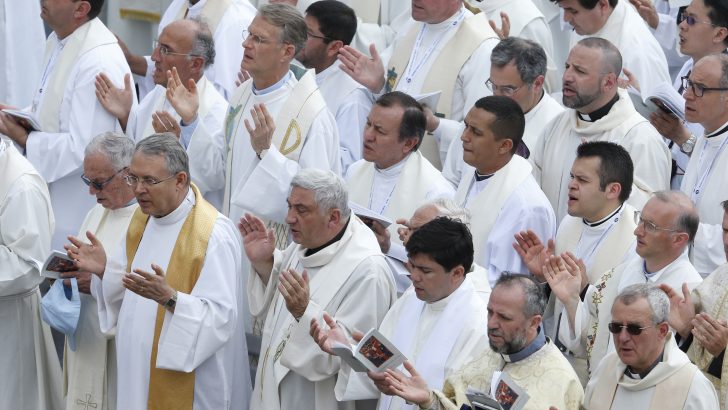The German bishops’ conference has decided to stick with traditional translations of the Lord’s Prayer.
The decision comes after the French bishops decided that beginning early December last year, French Catholics would change the line, “Lead us not into temptation,” to the equivalent of “do not let us enter into temptation.”
The common Spanish translation already is ‘no nos dejes caer en la tentacion’ or “do not let us fall into temptation.”
The issue got wide attention after Pope Francis discussed the line, “And lead us not into temptation”, as part of a television series on the Lord’s Prayer.
The Pope said the Italian and English translations of the ‘Our Father’ can give believers the wrong impression God can and does lead people into temptation, adding, “I’m the one who falls. But it’s not (God) who pushes me into temptation to see how I fall. No, a father does not do this. A father helps us up immediately.”
It is, he said, Satan, not God, who leads us into temptation. “That’s Satan’s job,” he said.
The German bishops’ conference announced on January 25 that after in-depth study, it would keep the line “and lead us not into temptation” unchanged, particularly since this translation is used by most Catholics and most other Christian denominations, adding that it would like to see more done in offering the faithful a clear and fuller explanation and discussion of the prayer’s meaning.
The Catechism of the Catholic Church explains that it is difficult to translate the Greek verb used in the original Bible texts of the Lord’s Prayer by a single English word: “The Greek means both ‘do not allow us to enter into temptation’ and ‘do not let us yield to temptation.’” (CCC 2486)


 Greg Daly
Greg Daly
